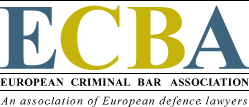The European Criminal Bar Association (ECBA) has intervened as a third party in a significant case before the US Court of Military Commission Review. The case revolves around Mr. Abd al-Rahim Hussein al-Nashiri, a detainee imprisoned at Guantanamo Bay, facing charges that could result in the death penalty. Notably, he was subjected to brutal torture during his time in CIA black sites.
This case hinges on an appeal by the US Government against the decision of Judge (and Col.) Lanny J. Acosta Jr., which suppressed all evidence tainted by the aforementioned torture.
The ECBA firmly endorses the view that evidence obtained through torture should be categorically excluded from legal proceedings. Torture fundamentally undermines the principles of the rule of law in civilized societies. Therefore, the ECBA strongly advocates for an absolute prohibition on the use of evidence obtained by torture.
The amicus curiae brief and this entire initiative have been expertly crafted and coordinated by Mr. Nicola Canestrini, a dedicated member of the ECBA's Human Rights Committee.
The U.S. Government itself has officially admitted in the records that the accused has been tortured by CIA for 4 years in at least 9 CIA’s black sites without knowing where he was and in (mostly) solitary confinement with so called EIT’s (enhanced interrogation techniques) and with unapproved techniques, which included standing sleep deprivation, head-down waterboarding, unlubricated forced rectal feeding, threats of sexual abuse for female relatives, sodomization with objects, total darkness, freezing temperature, dietary manipulation, Palestinian hanging with dislocation of shoulders, while detained naked in cells described by US officials as “medieval” (see decision pages 7 – 18). The accused was diagnosed with Post traumatic Stress disorder PTSD by a Military Commissions in 2013, likely related, at least in part, to the abuse he experienced in the CIA’s Rendition, Detention, and Interrogation Program.
Even if US Government concedes here that “the military commission should assume that statements petitioner made while he was in U.S. -- while he was in CIA custody should be treated as statements -- quote, statements obtained by the use of torture or by cruel, inhuman, or degrading treatment under 10 U.S.C. Section 948r(a), which provides that such statements are not admissible in a military commission", same Government argues that the statements made by the Accused in early 2007 to law enforcement agents and to the Combat Status review Tribunal should be admissible at trial because they were not obtained through torture or coercion and because the circumstances surrounding the making of those statements are sufficiently attenuated from the taint of the abuses inflicted upon the Accused between 2002-2006.
Military Commission Judge Acosta on 18 August 2023 sustained the defense’s motion to suppress the statements made by the accused in 2007, arguing that “any resistance the Accused might have been inclined to put up when asked to incriminate himself was intentionally and literally beaten out of him years before. For year , the Accused was coerced and psychologically conditioned to cooperate with questioners dozens , if not hundreds of times. To refuse to cooperate was to face the prospect once again of experiencing drowning, the fear of summary execution , days of sleeplessness while shackled naked in a cell, confinement to small boxes, forced rectal feeding , or other physical and mental abuse.” (p. 43 attached decision).
The military Commission concludes that the Government has not proven by a preponderance of the evidence that the presumed taint from the prior years of physical and psychological torment was dissipated when the Accused was again confronted with interrogators in January-February 2007. lnstead, the evidence supports a conclusion that the Accused did what he was trained to do: comply.
ECBA agrees with Col. Acost’s reasoning that “exclusion of such evidence is not without societal costs. However, permitting the admission of evidence obtained by or derived from torture by the same government that seeks to prosecute and execute the Accused may have even greater societal costs. Permitting admission of this evidence would greatly undermine the actual and apparent fairness of the criminal proceeding against the Accused in this case and infect the trial with unfairness sufficient to make any resulting conviction a denial of whatever process is due”.
Please see ECHR case law re the extraordinary renditions of Mr. Al Nashiri:
